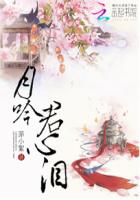Often he spoke to me of the principles of dramatic art, and of the mission of the artist. He told me that to have the right to call one's self an artist one must add honest work to talent, and he put before me the example of certain actors who had risen to fame, but who were repulsed by society on account of the triviality of their conduct; of others who were brought by dissipation to die in a hospital, blamed by all; and of still others who had fallen so low as to hold out their hands for alms, or to sponge on their comrades and to cozen them out of their money for unmerited subscriptions--all of which things moved me to horror and deep repugnance. It was with good reason that my father was called "Honest Beppo" by his fellows on the stage. The incorruptibility and firmness of principle which he cultivated in me from the time that I grew old enough to understand have been my spur and guide throughout my career, and it is through no merit of my own that I can count myself among those who have won the esteem of society; I attribute all the merit to my father. He was con scientious and honest to a scruple; so much so that of his own free will he sacrificed the natural pride of the dramatic artist, and denounced the well-earned honour of first place in his own company to take second place with Gustavo Modena, whose artistic merit he recognised as superior to his own, in order that I might profit by the instruction of that admirable actor and sterling citizen. My father preferred his son's advantage to his own personal profit.
HOW SALVINI STUDIED HIS ART
The parts in which I won the most sympathy from the Italian public were those of Oreste in the tragedy of that name, Egisto in "Merope,"Romeo in "Giulietta e Romeo," Paolo in "Francesca da Rimini," Rinaldo in "Pia di Tolommei," Lord Bonfield in "Pamela," Domingo in the "Suonatrice d 'Arpa," and Gian Galeazzo in "Lodovico il Moro." In all these my success was more pronounced than in other parts, and Ireceived flattering marks of approval. I did not reflect, at that time, of how great assistance to me it was to be constantly surrounded by first-rate artists; but I soon came to feel that an atmosphere untainted by poisonous microbes promotes unoppressed respiration, and that in such an atmosphere soul and body maintain themselves healthy and vigorous. I observed frequently in the "scratch" companies, which played in the theatres of second rank young men and women who showed very notable artistic aptitude, but who, for lack of cultivation and guidance, ran to extravagance, overemphasis, and exaggeration. Up to that time, while I had a clear appreciation of the reasons for recognising defects in others, I did not know how to correct my own;on the other hand, I recognised that the applause accorded me was intended as an encouragement more than as a tribute which I had earned. From a youth of pleasing qualities (for the moment I quell my modesty), with good features, full of fire and enthusiasm, with a harmonious and powerful voice, and with good intellectual faculties, the public deemed that an artist should develop who would distinguish himself, and perhaps attain eminence in the records of Italian art;and for this reason it sought to encourage me, and to apply the spur to my pride by manifesting its feeling of sympathy. By good fortune I had enough conscience and good sense to receive this homage at its just value. I felt the need of studying, not books alone, but men and things, vice and virtue, love and hate, humility and haughtiness, gentleness and cruelty, folly and wisdom, poverty and opulence, avarice and lavishness, long-suffering and vengeance--in short, all the passions for good and evil which have root in human nature. Ineeded to study out the manner of rendering these passions in accordance with the race of the men in whom they were exhibited, in accordance with their special customs, principles, and education; Ineeded to form a conception of the movement, the manner, the expressions of face and voice characteristic of all these cases; Imust learn by intuition to grasp the characters of fiction, and by study to reproduce those of history with semblance of truth, seeking to give to every one a personality distinct from every other. In fine, I must become capable of identifying myself with one or another personage to such an extent as to lead the audience into the illusion that the real personage, and not a copy, is before them. It would then remain to learn the mechanism of my art; that is, to choose the salient points and to bring them out, to calculate the effects and keep them in proportion with the unfolding of the plot, to avoid monotony in intonation and repetition in accentuation, to insure precision and distinctness in pronunciation, the proper distribution of respiration, and incisiveness of delivery. I must study; study again; study always. It was not an easy thing to put these precepts into practice. Very often I forgot them, carried away by excitement, or by the superabundance of my vocal powers; indeed, until I had reached an age of calmer reflection I was never able to get my artistic chronometer perfectly regulated; it would always gain a few minutes every twenty-four hours.
FAULTS IN ACTING
In my assiduous reading of the classics, the chief places were held among the Greeks by the masculine and noble figures of Hector, Achilles, Theseus, Oedipus; among the Scots by Trenmor, Fingal, Cuchullin; and among the Romans by Caesar, Brutus, Titus, and Cato.















